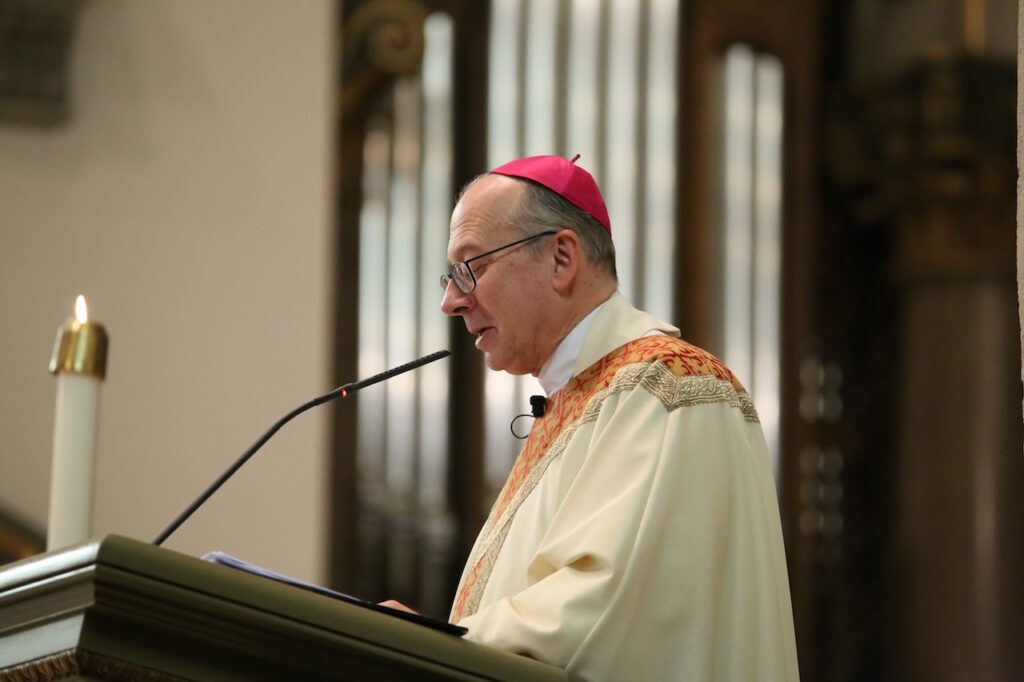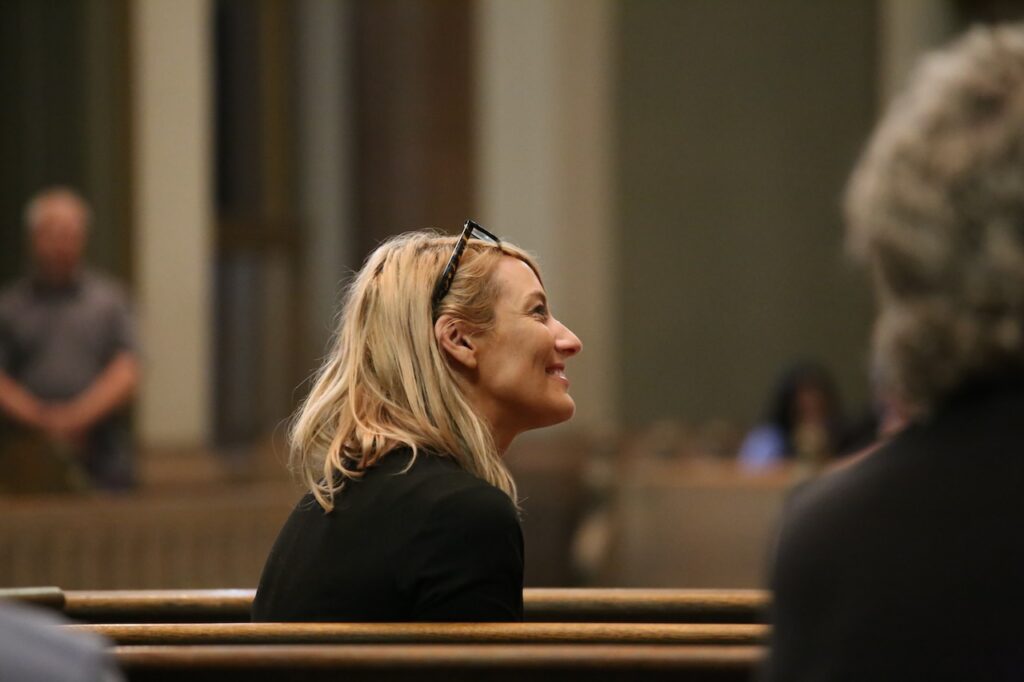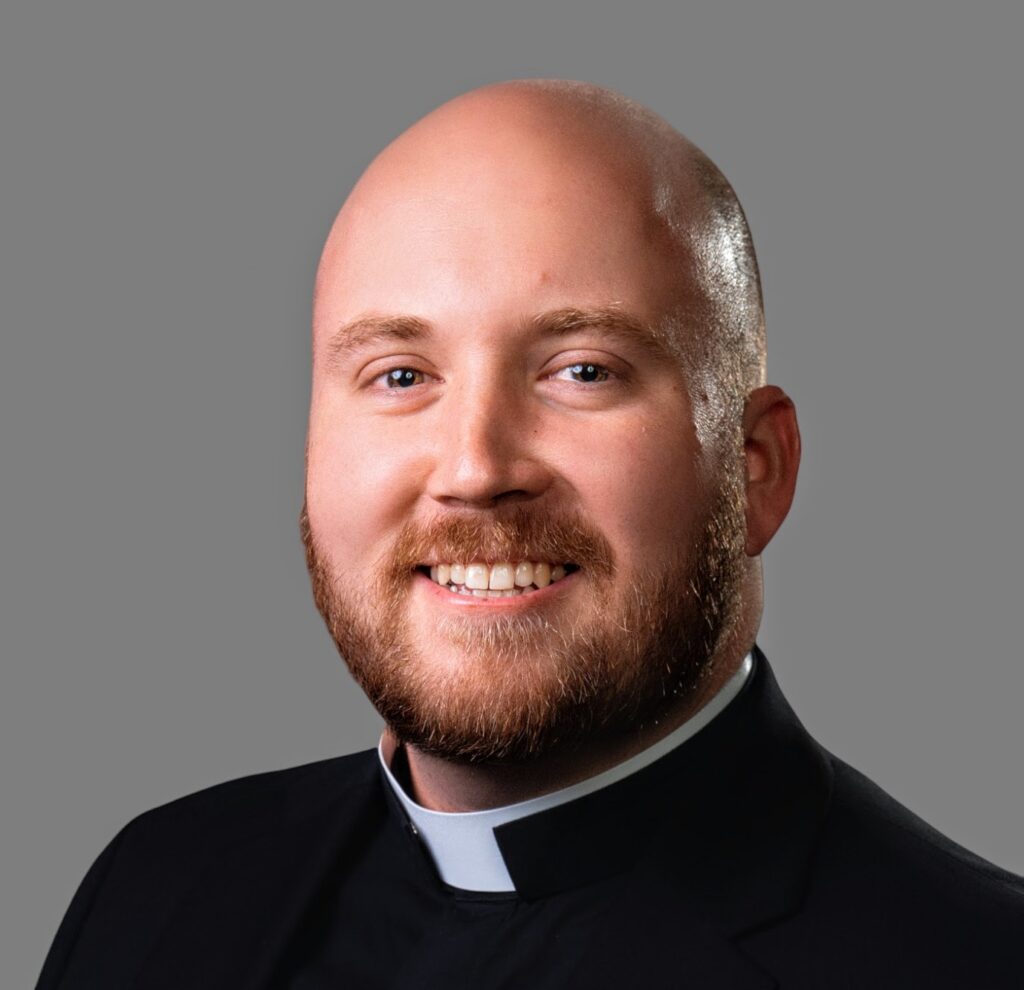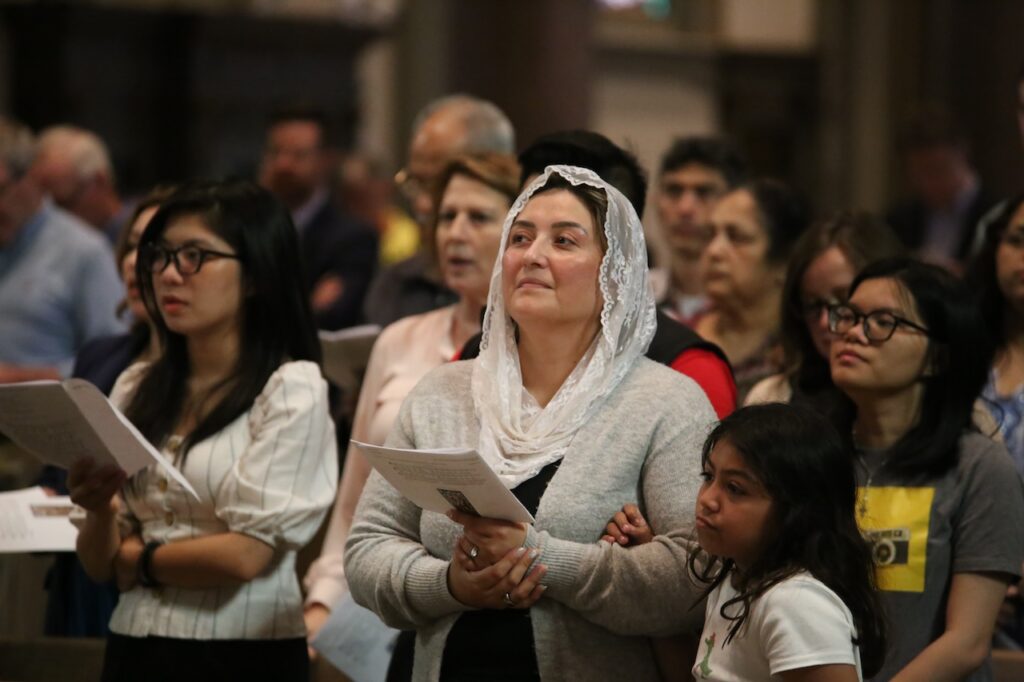Less than 24 hours after the election of Chicago-born Cardinal Robert Francis Prevost to the papacy, the first fourteen rows of the nave at the Cathedral of the Sacred Heart, Richmond, were jammed with over 200 joyful people. At 12 p.m., Bishop Barry C. Knestout offered Mass for the newly elected supreme pontiff Pope Leo XIV.
After the choir sang “Regina Caeli,” the Marian hymn for the liturgical season of Easter, the choir chanted the words from Matthew 16:18-19, in which Jesus told Peter, “You are Peter, and upon this rock I will build my Church, and the gates of the netherworld shall not prevail against it. I will give you the keys to the kingdom of heaven.”
Pope Leo XIV was elected the 267th pope on May 8. A dual citizen of the United States and Peru, he is the first pope born in North America.
“The election of Pope Leo XIV was unexpected,” said the bishop in his homily. “I always dismissed the idea that a pope would be elected from the United States.”
In an interview with the media after Mass, Bishop Knestout said that he, like all Americans, felt “a sense of national pride,” but added, “it’s more than that, because there’s a sense of joy for the whole Church as well.”

Cathedral parishioner Spencer Krier, who took pictures with an American flag by the picture of Pope Leo XIV after Mass, was jubilant.
“I was in a Mexican restaurant when I heard the news yesterday, and I just started jumping up and down,” said Krier. “I never thought in my lifetime we would see an American Holy Father.”
Natalie Carro, a young student from St. Mary’s, Richmond, came with her mom and sister to Mass. She was very excited about the American-born pope.
“He was born in Chicago, but he traveled around the world,” she said.
“He seems like a very happy man,” said her mother, Sheryl. “The meaning behind his name is also very cool. With all the things going on in the world, it’s exciting to have someone stand up.”
Pope Leo XIII, who reigned as pontiff from 1878 to 1903, was the author of the encyclical “Rerum Novarum,” in which he criticized both socialism and unrestricted capitalism, promoting instead the rights of workers to a fair wage, periods of rest, and safe working conditions, on the basis of their God-given human dignity.

“The previous pope who had the name Leo was very integral to expressing Church social teaching: How do we relate to the world around us?” said Bishop Knestout.
“He wrote about the dignity of the human person, the dignity of workers, the family, and a lot of the principles that guide our relationships as Catholics,” he added.
Sherry Giese, Cathedral parishioner, said she had just finished working outdoors on her beloved beehives when she saw the news about Pope Leo XIV on her phone.
“When I started reading about him, it sounded like he was supposed to be there,” said Giese.
She noted an interview that the pontiff’s brother John Prevost gave to ABC News, in which he said that Pope Leo XIV “always wanted to be a priest.”
“It’s nice when you find someone that was that devoted at such an early age,” she said. “And gee – the languages he speaks … all those things kind of add up to why he got the position he has.”
Per Catholic News Agency, Pope Leo XIV speaks English, Spanish, Italian, French and Portuguese. He can also read Latin and German.
At 69, Pope Leo XIV is the youngest pontiff since John Paul II was elected to the throne of St. Peter at 58 in 1978.
“We’re excited for his youthfulness,” said Mass-goer Kerry Kirk. “I think we’re going to have him for a long time.”
A view from the Vatican
Deacon Samuel Hill, who is studying at the Pontifical North American College in Rome, was in St. Peter’s Square when Pope Leo XIV was elected May 8. He shared the following reflection:

I was in Saint Peter’s Square, not expecting anything to happen, when the white smoke blew.
An hour later, when they said, “Habemus papam,” and the name, “Cardinal Prevost,” I was so surprised. Every time I think about it, it makes me smile.
Not in a thousand years would anyone expect somebody from the United States to be made pope. I imagine this might be how Polish people felt when St. John Paul II was elected … I just feel this affection for this man, for Pope Leo XIV.
When they said, “Habemus papam,” the crowd went wild, even before his name was announced. The seat of the papacy is not empty anymore. This is more than just a political leader. This is our Holy Father, and we’re happy and we’re joyful.
At the Pontifical North American College, we had a free night, which meant we could go to the lounge and spend time together. There was a lot of American music; a lot of guys were singing and waving American flags.
This was a case of more than 100 cardinals who don’t know each other, who don’t speak the same language, coming to a consensus to elect this man so quickly.
— Deacon Samuel Hill

